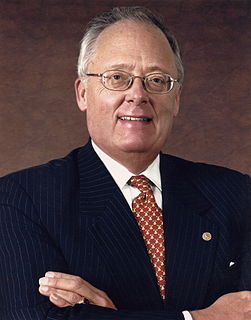A Quote by Gonzalo Rodriguez-Pereyra
Leibniz believed in freedom, both divine and human, and he thought that contingency was a necessary condition of freedom. That is, if an agent A acts freely when choosing X, then A's choosing X cannot be necessary. But there are some elements in his philosophy that seem to make contingency impossible.
Related Quotes
Freedom is necessary for two reasons. It's necessary for the individual, because the individual, no matter how good the society is, every individual has hopes, fears, ambitions, creative urges, that transcend the purposes of his society. Therefore we have a long history of freedom, where people try to extricate themselves from tyranny for the sake of art, for the sake of science, for the sake of religion, for the sake of the conscience of the individual - this freedom is necessary for the individual.
Theology recognizes the contingency of human existence only to derive it from a necessary being, that is, to remove it. Theology makes use of philosophical wonder only for the purpose of motivating an affirmation which ends it. Philosophy, on the other hand, arouses us to what is problematic in our own existence and in that of the world, to such a point that we shall never be cured of searching for a solution.
We want freedom by any means necessary. We want justice by any means necessary. We want equality by any means necessary. We don't feel that in 1964, living in a country that is supposedly based upon freedom, and supposedly the leader of the free world, we don't think that we should have to sit around and wait for some segregationist congressmen and senators and a President from Texas in Washington, D.C., to make up their minds that our people are due now some degree of civil rights. No, we want it now or we don't think anybody should have it.
"Freedom" is probably the word he said more than any other. He used the word freedom constantly. I think for some his frequent calls for freedom became a cliché because he did it so often. They didn't get it, but Reagan certainly did. He thought deeply about the relationship between God and human freedom and the nonrelationship between atheistic communism and that freedom.
I have observed this in my experience of slavery, - that whenever my condition was improved, instead of its increasing my contentment, it only increased my desire to be free, and set me to thinking of plans to gain my freedom. I have found that, to make a contented slave, it is necessary to make a thoughtless one. It is necessary to darken his moral and mental vision, and, as far as possible, to annihilate the power of reason. He must be able to detect no inconsistencies in slavery; he must be made to feel that slavery is right; and he can be brought to that only when he ceased to be a man.
































